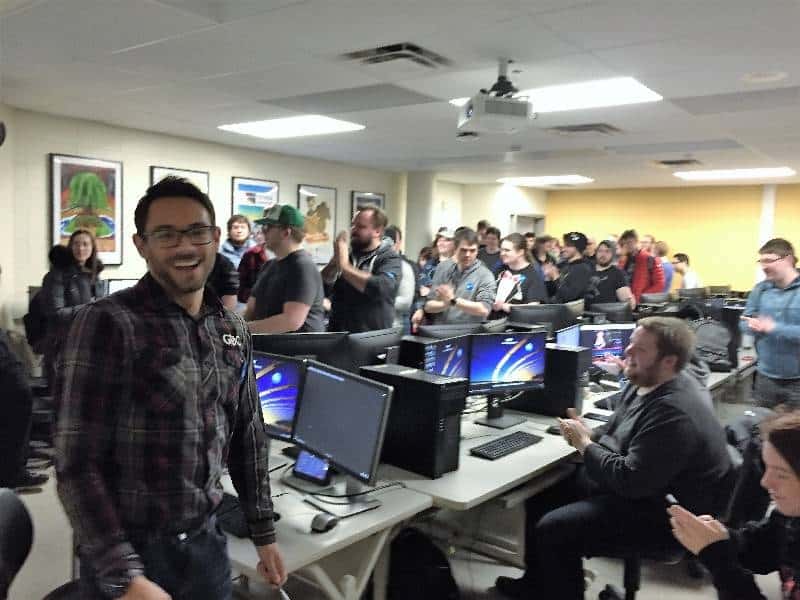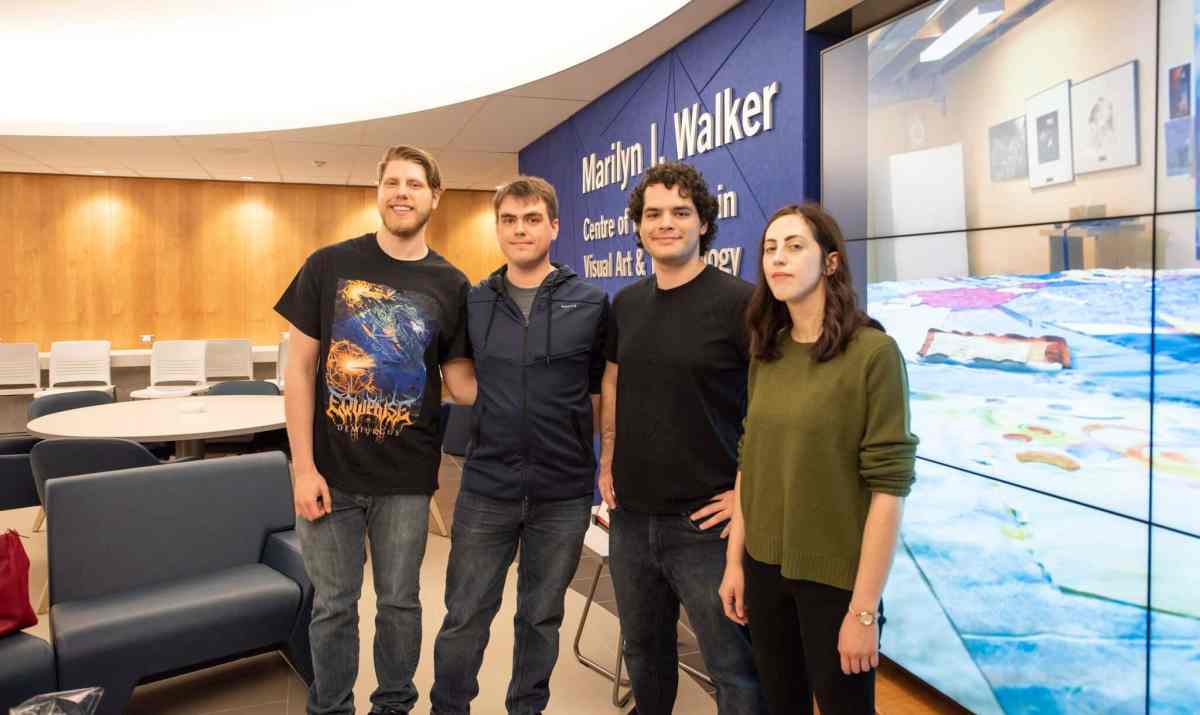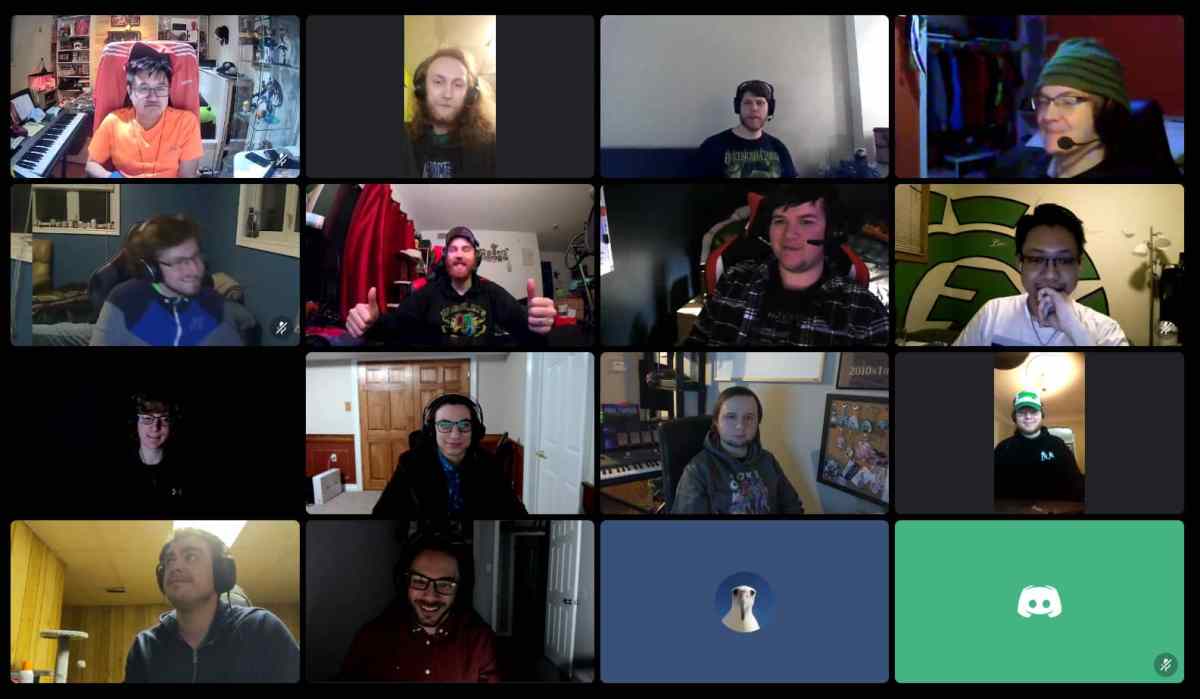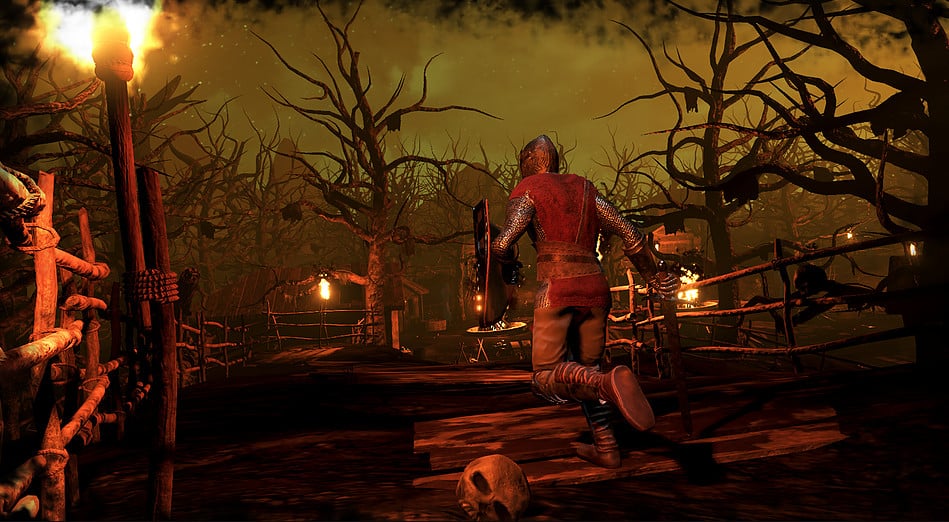A group of recent Niagara College Game Development graduates didn’t have to wait long to make their dreams come true.
Less than a year after graduating in 2019, their fantasy melee combat game called The Fallen became available on Steam – one of the biggest video game platforms on the planet.
The game originated as a student capstone project which they began working on in September 2018 during their third year.
“When we first started the program, this was an achievement none of us could have imagined,” said Andrés Coimbra Castedo, one of the game’s artists/developers who is among nine of his former classmates behind The Fallen. He now works as a lighting artist for a studio company called Apocalypse.
While the quest was challenging, they noted that their experience in the program made it all possible.
“The professors were the best thing about the program at NC,” he said. “They truly care and want to see you succeed.”
“I now have the experience in utilizing multiple software to better support my art, therefore, giving me confidence and insight on developing my skills,” said Emma Perretta, artist/developer behind The Fallen. “Niagara College gave me an unparalleled experience to complete a professional video game, which is now released.”
They are in good company. NC game graduates are entering this exciting, growing global industry and taking it by storm, moving into programming, art production, design, quality assurance, and animation positions.

The NC difference
Unlike many postsecondary game programs, which focus only on programming or art and design, NC’s Game Development students learn a breadth of disciplines including programming, art, design and production. While they have a chance to focus on what they like best, they acquire knowledge in other areas as well – and many of the skills acquired are highly transferable in the job market.
NC students are equipped with the latest game development skills, including a strong knowledge of software tools and production methods – such as Visual Studio, 3D Max, Photoshop, Substance, Illustrator, Mudbox, and DirectX – as well as modern engines and frameworks, like Unity. Students gain experience across PC and mobile development platforms, and use current generation hardware. They also learn how to publish their own games via Steam, App Store and Google Store.
Along with general knowledge about the game industry, NC aims to instill in its students a strong work ethic, a creative flare for games and components to create them, along with an emphasis on teamwork and problem solving.
NC game students learn in small classes, with a maximum of 25 students, instructed by full-time faculty who have extensive experience in the industry – from indie to AAA titles – as well as many part-time faculty who still work in the game industry or even run their own studios.
The NC experience
Andrew Bradshaw capped off his first year of the Game Development program last spring by releasing his game Cube Dash: Mainframe on Google Play. It was the first game he ever created and completed by himself – from programming, art and music to user interface – and it all started as a class assignment focusing on creating a point-and-click game for DirectX.
“When I first began my studies, I had no previous knowledge about game development, let alone programming, so I wouldn’t have imagined making a game or even my DirectX game project,” said Bradshaw, who enrolled to pursue his lifelong interest in games and how they work. “The great teaching job of the profs and their enthusiasm gave me the drive to push myself and test my skills.”
Like Bradshaw, many students do not have any experience with game development when they enter the program. Once they begin their studies however, experiential learning is the name of the game.
During their first year, students learn art, design and programming skills needed to make software – including games. Their second year takes them into a deeper dive and they begin making game components and smaller complete games, with a focus on design and smaller groups.
Their third year culminates in a capstone project. Students work in teams, mixing disciplines to develop their own game from scratch – from conception to design, planning and development, to the completion of their very own game title.

“The capstone project exposes our students to the same challenges they will face at larger companies to transform a project from a vision to completion, and how hard that is,” said program professor Rich Barnes. “They see that while making games is fun, it’s not all games – it’s hard work.”
While their academic programming relates class material to real-world situations whenever possible, students also have opportunities to apply their skills outside of the classroom.
NC’s annual Game Development Launch gives graduating students a chance to ‘test drive’ their games before hundreds of guests who see and play them during the event. NC’s game students have also promoted their capstone projects at events such as Comic Con and have won multiple awards competing in the Level Up Showcase in Toronto over the years.
An annual highlight is the Global Game Jam. For the past six years, NC has been a host site for the event, bringing game students and alumni together to take on the worldwide 48-hour game creation challenge.
“This event brings out the spirit of collaboration, connection and creativity of our game students and alumni as they join game developers from around the world and apply their skills in new innovative ways,” said Linda Roote, associate dean, NC’s School of Media Studies
A decade of NC excellence
NC launched its advanced diploma Game Development program in 2011. Five years later, NC began offering two dual-credential game programs in partnership with Brock University. Bachelor of Arts (Honours) Game Design grants a four-year BA Game Design degree from Brock and a three-year Advanced Diploma in Game Development from NC (completed in four years); while Bachelor of Science (Honours) Game Programming grants a four-year degree from Brock and a three-year Advanced Diploma in Game Development from NC (completed in four years).
While well established, the programs and courses evolve frequently to keep pace with industry changes through the introduction of new software packages, techniques and processes.
“We use and teach what is being used actively in the industry,” said program coordinator Rick Goertz.

State-of-the-art ambience
With a continued investment in student learning spaces, NC officially opened the Marilyn I. Walker Centre of Excellence in Visual Arts and Technology at its Welland Campus in fall 2019. Here, game students learn in four dedicated labs, a projects room and open-access lab, and have the advantage of new software, lab machine renewals and virtualization equipment. A student hub at the heart of the new centre features an ultramodern video wall where the latest student projects are displayed.
In fact, the first student project to be featured on that video wall was The Fallen. Coimbra Castedo and his team returned to their alma mater to present a trailer for their game at the Centre’s grand opening.
“It is a great space for current and future students,” he said. “It is important for the College to provide all that is necessary to learn successfully and also feel at home, and I think the College excels at this.”






Published: Feb 22, 2021 11:00 am